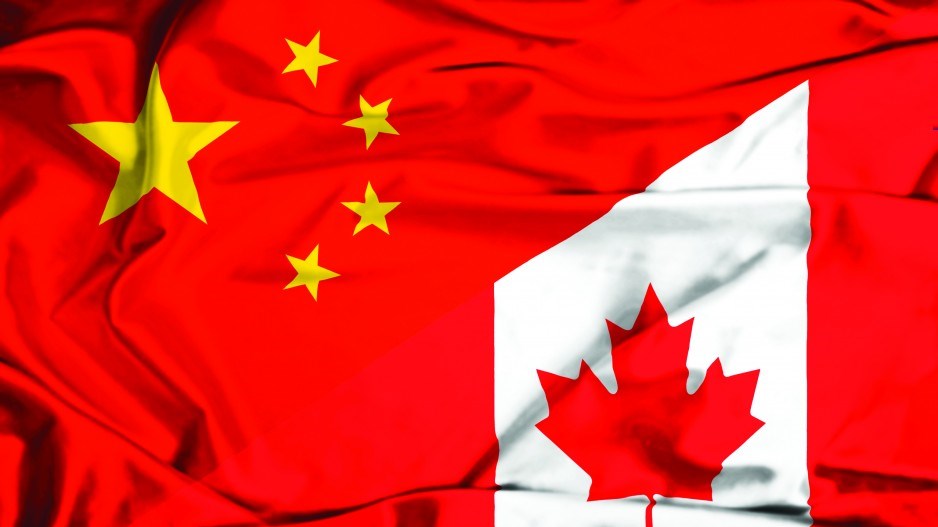B.C.'s latest trade mission to Asia appears to heed the advice of Asia-Pacific economic observers to diversify beyond the United States and China, its two largest trade partners.
Government officials have admitted that China will be skipped in the province’s trade mission to Japan and South Korea in part because of Ottawa’s strained relationship with Beijing following the arrest in December of Huawei Technologies Co. Ltd. CFO Meng Wanzhou. But they added that the pull factor from Japan – especially following the ratification of the Comprehensive and Progressive Agreement for Trans-Pacific Partnership (CPTPP or TPP-11) – played just as big a role.
“It recognizes [that] trade diversification is pretty important these days,” said Jobs, Trade and Technology Minister Bruce Ralston.
Japan and South Korea are B.C.’s third- and fourth-largest trade partners, respectively. B.C.’s exports to Japan reached $4.5 billion in 2017 and accounted for 38.5 per cent of Canada’s exports to the world’s third-largest economy.
The province’s 2017 exports to South Korea were valued at $2.9 billion, which was 55 per cent of Canada’s total exports to that country.
Officials announced last week that Ralston and B.C. Minister of State for Trade George Chow will visit the two countries March 16–22 but skip the traditional third stop on the East Asia itinerary in China.
They were quick to point out that the trade mission is the first Canadian provincial delegation to travel to Japan since both countries ratified the CPTPP. The 11-country trade bloc came into force on December 30.
Many trade observers have said B.C. needs to diversify trade away from the U.S. and China because President Donald Trump’s protectionist administration and China’s hardline stance on Canadian trade following Meng’s arrest have thrown B.C.’s heavy reliance on those two markets into question.
But Yves Tiberghien, director emeritus of the Institute of Asian Research at the University of British Columbia, said businesses also need to take advantage of the rare opening in the Japanese market the CPTPP provides for Canada, which had been trying to secure a free-trade agreement with Japan for two decades.
The key, Tiberghien said, is that the United States backed out of the TPP two years ago, which has provided Canada with a window of tariff advantage this year – before Washington re-enters free-trade negotiations with Japan.
Tiberghien added that Tokyo has been “extremely friendly” to the Canadian market in the last year.
“You have access from government; you have access from the private sector. This is the year to do business with Japan.”
Sean King, Park Strategies senior vice-president, echoed that view.
The former U.S. commerce official said many traditional U.S. allies like Canada and Japan are increasingly looking to each other in the face of the Trump administration’s hostility to multilateral trade frameworks.
King added that he hopes to see more trade links built along the lines of geopolitical alliances, similar to what was traditionally the case globally.
Hugh Stephens, an Asia Pacific Foundation of Canada distinguished fellow, also suggested that Ottawa could reach additional tariff-free markets through an organic expansion of the CPTPP. So far, markets like Indonesia, Thailand, Taiwan and South Korea have all expressed interest.
Stephens added that expansions would include CPTPP partners, such as Malaysia, that are in the agreement but have yet to ratify the final document.
However, observers also warned that none of the markets can fully replace China if relations deteriorate further. Export-sector observers in B.C. have warned that several B.C. industries may be overexposed to China, the focus of a decade-long effort previously to diversify trade away from the United States.
For example, B.C. cancelled the Chinese leg of a lumber-industry trade mission to Asia earlier this year following Meng’s arrest in Vancouver.
Meanwhile, Beijing has started to clamp down on Canadian exports. Earlier this month, it revoked the canola import permits for Winnipeg-based Richardson International – one of Canada’s biggest grain processors.
But Ralston remains optimistic about riding out the storm.
“The relationships nurtured by our trade offices [in China] continue. So I’m optimistic that the present bumps along the road will be resolved, but at the moment that’s not the case, so we need to focus [on diversification].”
Tiberghien said he is confident that relations with China will recover eventually but also acknowledged that the short-term “tactical move” of skipping China is prudent.
“The reality is that currently the relationship is raw, and it’s true that a trade mission would not accomplish very much.”
But King said B.C. should consider a more semi-permanent shift to ideologically similar allies as bigger trade partners.
B.C.’s trade mission in Japan will focus on clean energy, communications technology and digital entertainment. The Korean portion will concentrate on B.C.’s sister-province relationship with South Korea’s Gyeonggi province – the suburban region surrounding Seoul.



